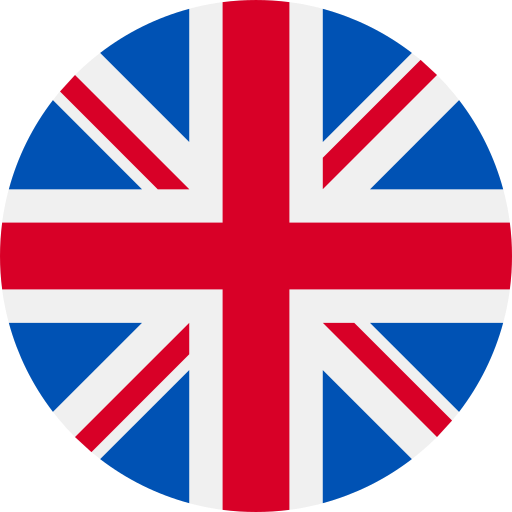There are several household ingredients that can be used to treat stains when you’ve been caught off-guard. From coffee spills to oily stains, we’ve all been there. If a laundry disaster strikes and you don’t have any powerful stain removers on hand, we’re going to show you some of the best home solutions to fight off tough stains. We discuss each DIY stain remover, how to use it, and when to bring in an alternative approach, like Freddie laundry detergent sheets.
Understand the Science Behind Stain Removers (Vinegar, Baking Soda, Hydrogen Peroxide)
Storecupboard stain removers like vinegar, baking soda, and hydrogen peroxide are often overlooked. Instead, it’s so easy to grab a stain remover off the shelf at your local grocery store, but in reality, a lot of these quick-fix products are full of chemicals. But did you know just how many common household items can be used as a stain remover?
Natural stain removers don’t strip clothing—they work at a molecular level to gently break down the bonds that hold dirt and grime to fabric. They can lift stains from the fibers, neutralize odors, and leave your clothes feeling and smelling fresh, all without the need for harsh surfactants and artificial fragrances. For optimal results, consider pairing your solution with laundry detergent sheets.
Explore Vinegar: A Gentle, Multipurpose Cleaner
You likely have some distilled white vinegar sitting quietly at the back of one of your kitchen cupboards, just screaming to be used. Well, if you’re not using it in the kitchen, it’s time to introduce it into your laundry routine. It’s inexpensive and very gentle on all fabrics, making it a great tool for tackling stubborn stains.
White vinegar in particular is perfect for removing yellow underarm stains, and it’s a natural disinfectant, making it ideal for sweaty gym gear and killing germs on bedding and towels. However, it’s important to know that white vinegar works best; using apple cider vinegar can cause discoloration. Avoid using it on very delicate fabrics such as silk or wool, as the acidity can weaken fibers over time.
Harness Baking Soda: Versatile and Non-Toxic
Baking soda is another common kitchen essential that doubles as a stain remover. Baking soda is an alkaline powder that works particularly well on tough grease and oil marks, and neutralizes acidic stains like those from coffee or wine spills. This non-toxic stain remover is a natural odor neutralizer, so your clothes stay smelling and feeling fresh time and time again. Since baking soda is very mildly abrasive, you should be cautious when using it on extremely delicate fabrics, as it could damage them.
Lemon or Lime Juice: Zest is Best
Using lemon or lime juice as a stain remover is as natural as it comes. Lemons and limes use their natural acidity to break down and remove stains, while leaving clothes smelling fabulous, too. Their acidity makes them a natural bleaching agent, and they’re particularly great for removing sweat marks, food stains, or rust.
Since it acts as a natural bleach, you should treat it like bleach. If you accidentally splash some on colored clothing, act fast to avoid color damage. For this reason, you might want to avoid using it as a stain remover on dark colored clothing as it can fade them. Instead, add some to your next white wash and bring some life back into your dulling whites! For spot treatment, create a paste of lemon, baking soda, and water. Let it sit for at least 30 minutes and then gently scrub away.
Hydrogen Peroxide: A Powerful Bleach Substitute
Hydrogen Peroxide (H2O2) is an oxidizing agent that works as a disinfectant and a mild bleaching agent—removing tricky stains like blood and wine with ease. Hydrogen peroxide is gentle enough and safe to use on most fabrics, but be careful if you plan on using it on colored clothing, as it can cause fading.
Add it to your next wash with bedding, gym gear, and towels to kill off all of those nasty bacteria. Since it’s a natural bleach, it can also revive some of your sad-looking white garments, or use it as a spot treatment by adding it directly to the stain. Leave it to work for around 10 minutes, then wash the item as normal.
Buy Into Borax: A Natural Mineral For Stubborn Stains
Borax is a naturally occurring mineral compound made up of sodium, boron, oxygen, and water. It has a high pH level that helps to soften water and improve your detergents’ performance.
It’s suitable for removing odors and softening clothes, and if that wasn’t enough, it also helps reduce the buildup of residue in your washing machine. It’s non-toxic and is safe to use on most fabrics, except for delicate fabrics like wool and silk, where borax can weaken the natural fibers over time. Avoid direct contact with your skin, as it can cause irritation.
Try Cornstarch: Simple, Sustainable, Effective
Got oil-based stains all over your favorite sweater? Don’t panic! Cornstarch can work wonders as a natural stain remover for soaking up oil and grease-based stains. It also works a treat on underarm stains and is a natural deodorizer.
Just sprinkle a generous amount over the stain—acting as promptly as you can—and let it sit for a few hours to allow it to absorb as much of the stain as possible. Gently brush off the powder and wash as normal for fresh, oil-free clothes.
Table Salt: A Multifaceted Household Staple
Most kitchens these days are sure to have some table salt lying around, but not everyone knows the power of salt as a stain remover. Whether it’s absorbing red wine spills or using its abrasive nature for scrubbing tough stains, salt can do it all.
Since it’s mildly abrasive, avoid using it on very delicate fabrics. Use it as a spot treatment by adding it directly to the stain, or dissolve some salt in water and let the garment soak for a few hours.
Explore Rice Flour: A Gentle Way To Lift Oil and Grease
Rice flour is a very finely milled, gentle stain remover that works by absorbing oil and grease from fabrics, without causing any damage to the fibers. Rice flour is hypoallergenic, making it ideal for people with sensitive skin or allergies, and is suitable for washing baby clothing.
Put some on the stain, let it sit for 15-30 minutes, then gently brush the residue away. Rice flour is biodegradable and shouldn’t leave behind any residue that could cause harm to your garment. Pair with Freddie detergent sheets to rinse as normal for a laundry routine free of chemicals such as dyes, bleach, phosphates, and parabens.
Chalk: The Everyday Quick-Fix For Greasy Stains
Chalk works similarly to cornstarch in that it works well to absorb oil-based stains. It’s as simple as rubbing the chalk directly onto grease or oily stains and allowing it to soak up the stain before proceeding to wash it as normal. It’s a great emergency option to have on hand if you’ve been caught on the go and need a quick fix.
Milk: A Humble Kitchen Essential
Believe it or not, milk is a surprisingly impressive stain remover. Not for milk stains themselves (duh!), but for the likes of ink, dye, or fruit stains. The proteins in milk work to draw the color out and gently lift the stain without the need for harsh chemicals. When using milk as a stain remover, be wary of soaking it for too long or forgetting to wash it right away. No one wants to smell like sour milk!
Vegetable Glycerin: Gentle And Skin-Friendly
Another natural stain remover that works well for ink and dye stains is vegetable glycerin. Its super gentle formulation breaks down and softens any residue and dirt, making them much easier to rinse away.
Apply a generous amount and massage it into the stain. Let it sit for 15-30 minutes, then blot and wash as you usually would. Vegetable glycerin is completely natural and biodegradable, making it a perfect option for anyone trying to avoid harsh laundry chemicals. Wash with a laundry detergent that’s free of harmful ingredients for best results.
Frequently Asked Questions
What Is the Best Natural Stain Remover for Laundry?
The best natural stain remover for your laundry will vary depending on the type of stain you’re treating, as well as the fabric you’re removing it from. In general, baking soda is a powerful stain remover and works well for most stains.
Is Baking Soda and Vinegar a Good Stain Remover?
Yes, baking soda and vinegar are great stain removers when used separately. If used together, they’ll react and cause fizzing, which is ineffective and negates the positive qualities of each ingredient independently.
Freddie Laundry Sheets Offer a Convenient Alternative to Traditional Detergents
You’ll find a ton of natural stain remover remedies around your home if you look hard enough. From grease, oil, ink, and wine stains, there’s a remedy for every laundry disaster! Keeping your clothes looking and feeling clean doesn’t mean you have to use harsh chemicals to do so. For great stain removal results, pair any of these methods with a laundry detergent sheet to get sparkling clean clothes that smell fresh and feel amazing.


 United States
United States
 Canada
Canada
 Australia
Australia
 United Kingdom
United Kingdom
 Belgium
Belgium
 France
France
 Germany
Germany
 Hong Kong
Hong Kong
 Italy
Italy
 Japan
Japan
 New Zealand
New Zealand
 Portugal
Portugal
 Singapore
Singapore
 Sweden
Sweden
 United Arab Emirates
United Arab Emirates

